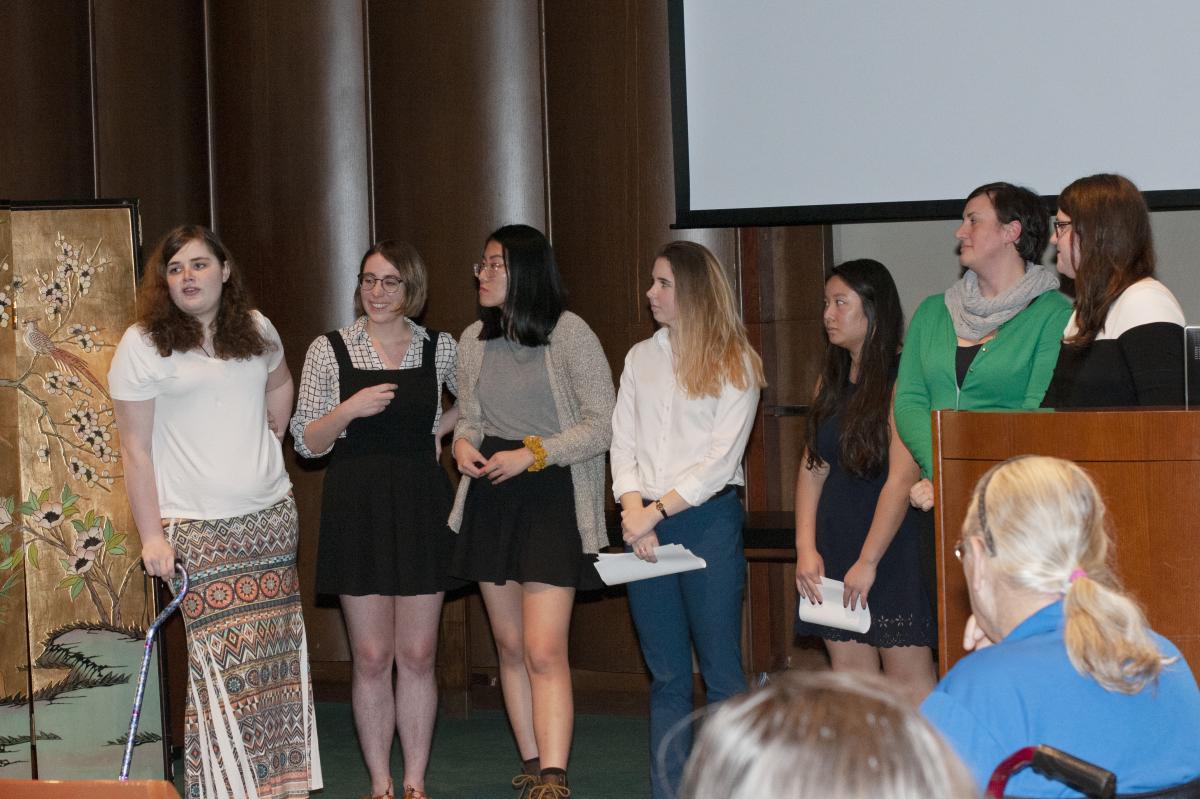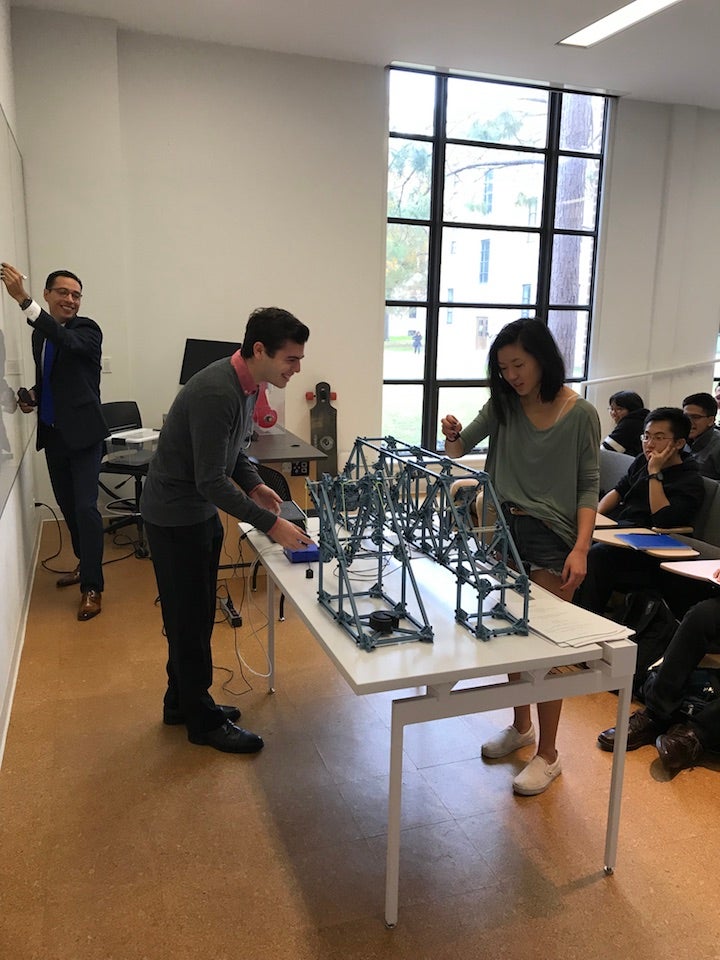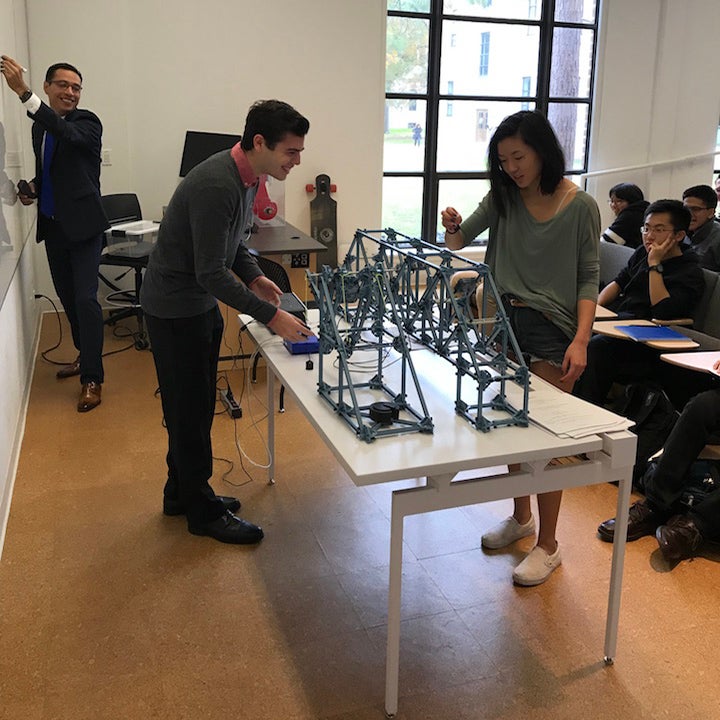CEVE/MECH 211 Engineering Mechanics
In the fall of 2018, the Office of Inquiry-Based Learning awarded an IBL Teaching Grant to Dr. Eleazar Marquez for his course Engineering Mechanics, CEVE/MECH 211. “Being a competent engineer involves having a solid mathematical background and a thorough physical understanding on how systems operate,” explained Dr. Marquez. “However, most of the students’ academic development is centered on deriving tedious equations and solving textbook problems, which are difficult to visualize and physically understand.”
With the support of IBL, Dr. Marquez was able to incorporate visual models to enhance the physical understanding of fundamental concepts like force distribution, friction, and motion of particles. Throughout the semester, students used the models to evaluate and synthesize relevant data. “I liked the projects that came out of these models. We had to measure the lengths of the various members and get an actual understanding of how we would collect data in real life,” explained sophomore, Cooper Lueck, Brown College. “The models also made class more enjoyable! Even just a quick demonstration made it more fun to see how something works in class.”
The fully-loaded structures used in the classroom allowed students to observe the reactions of the models while simultaneously validating their theoretical work. “Engineers in general have to be visual, especially in the field. We cannot work only with data. We also have to be able to create a product. It’s very helpful to see the numbers back up the actual product that is in front of you,” said Ryan Udell, Junior, McMurtry College.
SWGS 317 Transgender Studies
Transgender Studies was introduced as a new offering from the Center for the Study of Women, Gender, and Sexuality in the fall of 2018. This seminar-style class, taught by Dr. Brian Reidel, utilized a teaching grant from the Office of Inquiry-Based Learning to incorporate the participation of Houston-area transgender community leaders, offering feedback and advisement on student projects.
Course design required students to frame their own hypothesis through an initial project proposal and in-person meeting with Dr. Reidel. “Brian gave us the opportunity to pick out what our research project was going to be. We started by writing up a proposal of a project we were interested in and shaped it as we went along,” said Hazel Marshall, Junior, Hanszen.
Throughout the course, students developed their own methodology and evaluation process by identifying resources and evidence through a self-structured selection criteria. Students synthesized and communicated their work at a capstone event, a public conference titled Trans Formations: Projects in Transgender Studies. “[The process] almost felt like a workshop – being able to see all the different ways different authors had looked at trans-studies, then getting to pick what I thought would be most helpful for my particular project.”



